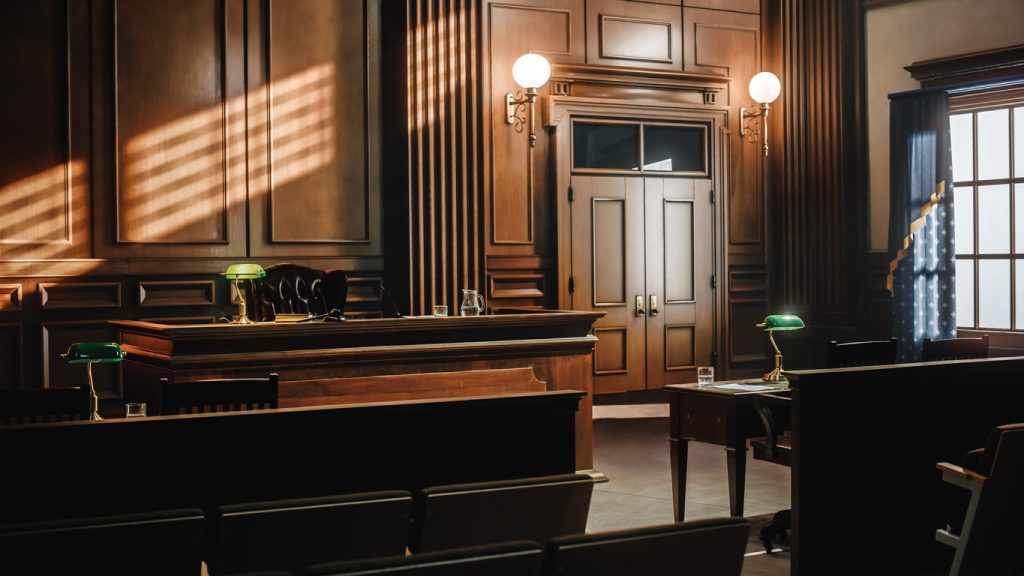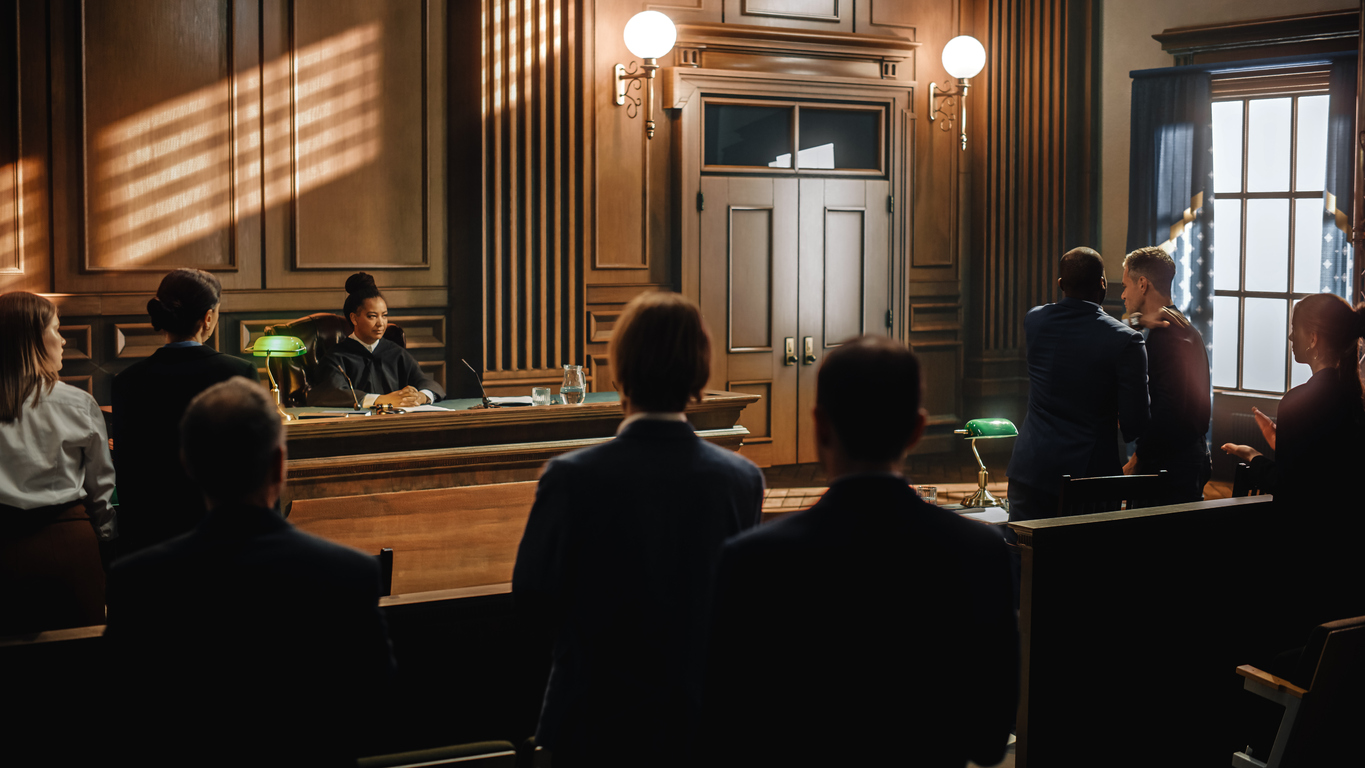The Fifth Amendment includes important rights that protect you during a trial. First, it protects you from revealing incriminating information about yourself to police. When someone “pleads the Fifth,” they refuse to answer questions or provide information that police or prosecutors may use against them.
The Fifth Amendment also includes protections against “double jeopardy.” This means that you can’t face criminal charges for the same crime twice. In other words, the prosecutor doesn’t get a second bite at the apple. If the jury finds you not guilty, that criminal case is over.

What Fifth Amendment rights apply during a trial?
The Fifth Amendment provides several different rights that apply during a trial in a criminal case. The most well known one is the right to remain silent.
To exercise this right, you plead the Fifth. You have the right to not answer police and prosecutor questions — both while in custody or in court. And, by pleading the Fifth, you exercise that right. In court, people refer to this right as the right against self-incrimination.
In addition, the Fifth Amendment includes protections against double jeopardy, the right to a jury trial and a fair trial when you are charged with a crime and protections against the taking of property by the government without compensation.
What is self-incrimination?
Government officials cannot force you to testify against yourself. This means that you have the right to remain silent during a police questioning or trial. You also have the right to remain silent in prison. This means that government officials can’t force you to admit anything.
What is double jeopardy?
Because of the Fifth Amendment, the government cannot charge you with the same crime twice. Put differently, the government can’t put you in jeopardy twice (i.e., double jeopardy). This means that when you go to trial on a criminal charge and are not convicted, the government cannot re-charge you with that same crime based on the same actions again. This is true even if the government finds more evidence after trial.

Who can exercise their Fifth Amendment rights during a trial?
A defendant in a criminal trial can plead the Fifth by refusing to answer questions. This right is considered waived or given up once a defendant takes the stand and answers questions. The jury cannot use a defendant’s refusal to testify in their own defense against them. Prosecutors cannot argue to a jury that silence equals guilt.
The Takeaway:
The Fifth Amendment gives a criminal defendant the right to not testify during trial. This protects them from incriminating themselves. But pleading the Fifth does not mean guilty. The Fifth Amendment also includes several other rights focused on making sure you have a fair trial. But a fair trial does not mean a perfect one. Prosecutors, judges and even your own attorney still make mistakes.






